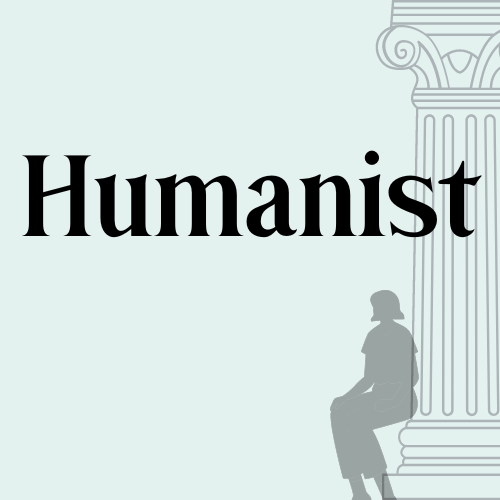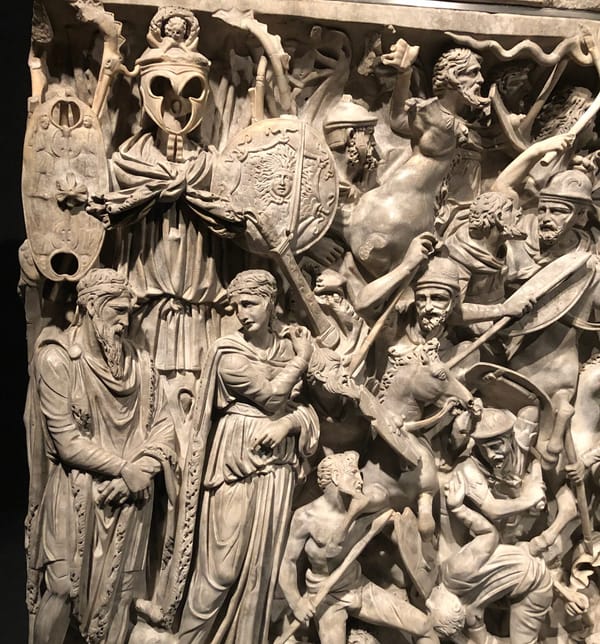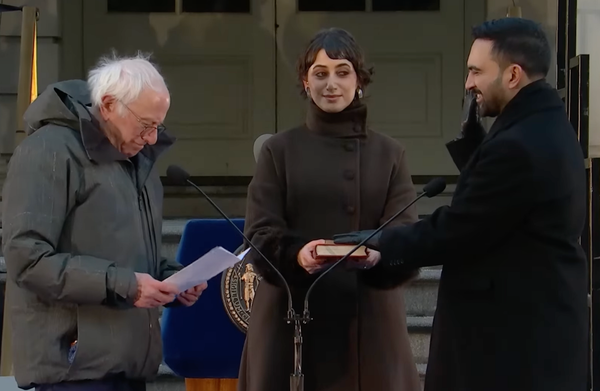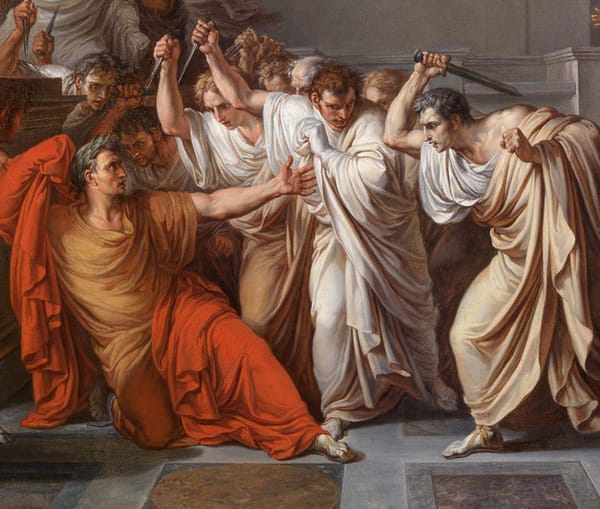Going old school with oral exams
Oral exams have been proposed as a solution to AI-assisted plagiarism. Adding that interpersonal dimension of oral communication can result in more durable learning and a greater feeling of satisfaction, a perception of meaningful growth. That means that we as educators might enjoy them more too.
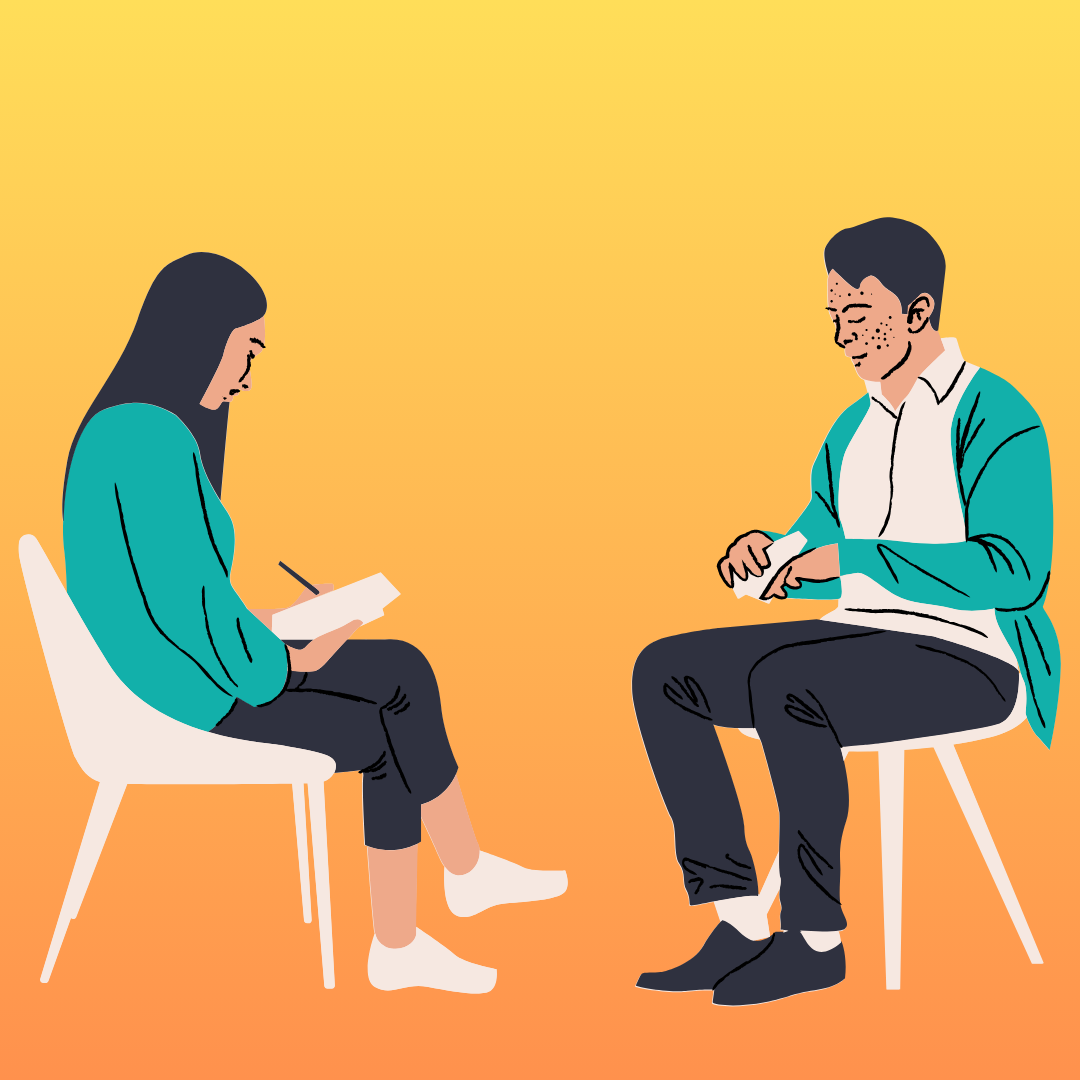
Last year, I went to a fantastic event at Rutgers Newark: the Marion Thompson Wright lecture series at the Clement Price Institute on Ethnicity, Culture, and the Modern Experience. The then-acting chancellor, Jeffery Robinson, gave remarks that really stuck with me about a class he took as an undergrad at the very same institution (you can watch a recording here):
So let me just take you back 30 years ago. The young Jeffrey Robinson had to wake up early to get to Dr. Ivan Van Sertima‘s class. … And I am in the class, and it is exam day, and the way he did his exam was he did oral exams. He’d have you stand up – "Mr. Almonor, stand up!" – and he’d ask you a question, something that you were supposed to know. And if you answered it correctly you got credit. "Next person, Mr. Robinson, stand up." He’d ask you a question, "give me one of the evidences of the early African presence in early America." You have to give your answer and sit down. Either you will get it right or you will get it wrong. And after a couple times of doing this, we would ask him the question: "Dr. Van Sertima, why do you give oral exams? All of our other professors, they give us other kinds of exams. They give us the written exam — we sit down, we write the essays down, we sit down and we give it to you to grade." He says, "I don’t give those kinds of exams." We said, "Why?" He said, “Because one day they will burn my books. One day they will ban my books, and the knowledge that I’m giving you has to be somewhere where I know it’s secure: between your two ears.” And I said to myself, the 20-year-old Jeffrey Robinson said, “They’re not banning books! They’re not gonna stop scholarship, we’re not gonna have a time in the future where we have to worry about the words that we say or the research that we have to do!” Oh, you naïve fool of 20 years old. Here we are. Here we are. The prophets of our human existence like Octavia Butler and even George Orwell and Dr. Van Sertima predicted a moment where politics would be toxic and words, words would be banned and books would be banned.
This historian from Guyana didn't bother with "It Can't Happen Here."
Oral exams are still pretty common in Europe, and have been proposed lately in the United States as a solution to challenges to academic integrity, first in remote learning settings during the pandemic and recently in response to the problem of AI-assisted plagiarism. In 2022, UNC historian Molly Worthen wrote for the New York Times: "If It Was Good Enough for Socrates, It’s Good Enough for Sophomores." She gathered testimonials from colleagues and students across several other disciplines to show the value of returning to this old form of assessment. Students actually reported feeling freer to express opinions to their professor in an oral exam than to their peers in classroom discussion.
Worthen and other propoenents also point out that oral exams more closely replicate the kinds of situations in which most of us perform and receive professional feedback outside of school. It's closer to an interview scenario that students will probably have to contend with and get used to in their careers. It's also closer to the way we exchange knowledge for fun in our daily lives, rather than an artificial and inauthentic performance.
Our academic culture values the written word over the spoken word, prizing the apparent objectivity of a depersonalized, precisely articulated text replete with footnotes. Indeed, plenty of AI skeptics have been pointing out lately (and I agree) that students really do need to go through the whole complex writing process as a component of their education, not because we said so but because people learn through the act of writing. We come to new understanding, we refine our argumentation and reasoning, we test our beliefs, and we organize our thoughts. That said, we can also achieve those ends through speaking, and adding that interpersonal dimension of oral communication can result in more durable learning and a greater feeling of satisfaction, a perception of meaningful growth. That means that we as educators might enjoy them more too.
Having now done some more reading about oral exam pedagogy, I think it's a great idea that's worth some experimentation.
Not as traumatic as you think
I do not remember taking any oral exams in my academic career, not because I didn't have any, but because I blacked them out. Most of us probably associate oral exams with intense anxiety: a panel of professors in a private room, grilling us to see if we measure up in a situation with high stakes for our future plans. That's also what most students imagine.
So I was surprised to read that after they've taken oral exams, most students actually report that it was less terrible than they anticipated – in fact, a good number of them actually report having a positive experience! They prepared for oral exams more extensively because they were afraid of sounding stupid, but in the event, they found that they sounded less stupid than they feared they might. Their professors, instead of making them feel stupid or grilling them impassively, engaged in conversation and cared what they thought (shocking, I know!). If a student gave a muddled response, instead of grading them on that, their professor asked: "What do you mean?" "Can you rephrase or expand on that?" "I hear you saying X, do I have that right?" That was particularly helpful to neurodivergent students, and to students who were not native English speakers. The professors appreciated being able to ask these questions too, to test whether students were guessing, mindlessly following a formula they didn't understand, or regurgitating a memorized response.
Students also found that their professors actually helped them, prompting or redirecting them when they started down the wrong path (especially in math or science classes when they were showing their work in solving a problem) and helping them get back on track, so that they could demonstrate what they really did know. The professor might help them along, saying, "Yes, that's a good point – do you think [other person/event/text] fits that pattern too?" Or "I want to come back to the original question I asked and address it more directly – let me repeat it." Instead of giving up or leaving a question blank on a written exam, in an oral setting, students often persevered (even after an awkward silence) and outperformed their own expectations. In general, in many cases, student performance improved substantially when oral exams were introduced.
UW Green Bay scholar Rosemary Ackley Christensen roots the practice of oral examination in indigenous modes of learning through sharing knowledge reciprocally. Elders present their knowledge, but students also learn by teaching or presenting, leading elders to rethink what they know. Younger learners engage with elders, not as lecturers or authority figures but as respected and respectful mentors. While European educational paradigms traditionally rest on obedience and discipline, indigenous connected pedagogies train individuals to act with personal sovereignty and think for themselves: thus, Christensen has students evaluate their own performance on oral exams on the spot, and they are also encouraged to point out each other's contributions that deserve credit.
I was surprised to read that most professors find that administering oral exams isn't actually any more time-intensive than administering written exams. The burden of scheduling them is inconvenient (alleviated somewhat by doing them online rather than in person), but even in classes of up to 50 or 60 students, professors reported that grading was so much faster on oral exams (often done on the spot with a rubric – see below for some examples) that they saved time overall. They were spending 10-20 minutes per student in most cases, although some went up to an hour. Some examined students in groups or pairs; some examined students in class, in front of their peers, for transparency and so that students could learn from one another's answers. And all emphasized that you can't grade too many of these consecutively without breaks.
One challenge, however, was the subjectivity of assessing oral exams. The grading of the oral membership exam of the Royal College of General Practitioners in the U.K., for example, was found in 2000 to produce significant bias against people of color and non-native English speakers. Rubrics essentially had to define the components of an excellent or correct answer, so that different examiners could check them off and quantify the correctness of the response. In scenarios where large numbers of students are being examined by different individuals, it's very hard to standardize the questions (and follow-up questions) asked, and the criteria by which responses are judged. Non-expert TAs can't substitute for professors.
In addition, a few teachers and professors report that when students complain about their grades on an oral exam, it's harder to provide specific evidence to support the grade you gave (unless you're recording online meetings, which some educators do). This was rare, but it's important to take notes, just in case.
Introducing oral exams
Many of us have never administered an oral exam, and many students have never taken one. This being the case, I think it's beneficial for everyone to have plenty of practice and preparation. I might share that New York Times article with students in advance, to reassure them that I had solid pedagogical reasons and friendly intentions in putting them through such an uncomfortable new scenario.
In most cases, professors in the published cases I read were giving students a fixed list of questions, topics, or concepts to prepare in advance, and choosing at random from a hat (or having the student choose randomly) during the exam. This meant that students were directed in their preparation, and the exam was more structured than a free-flowing or unpredictable conversation. In some cases, instructors allowed each students to choose one or some of the questions they would be answering. Some also allowed students the option to skip a question.
Some ideas for pre-work leading up to oral exams:
- Invite students to choose a topic, literary passage, archeological site, or artifact they'd like to talk about during a portion of the exam
- Invite students to brainstorm questions or topics that should be fair game
- Take a few minutes in class for groups to brainstorm questions or topics for the exam, and then pass them to another group to practice answering together
- Take a few minutes in class for students to grade sample responses, so that they understand the rubric and grading criteria
- Take a few minutes in class for students to role-play as the exam taker and the examiner (from this Danish guide)
- Assign a writing assignment in which students reflect on their biggest takeaway or epiphany from the class, or the thing they most want to remember, or the thing that most surprised them, so that you can ask them follow-up questions about it during the exam
In most cases, professors shared a grade with the student on the spot (although they might call it provisional and revise it later), using a basic rubric to assess key criteria:
- accuracy of recall of facts/information
- level of detail the student volunteered
- use/citation of course material
- thoughtfulness and originality of connections made among people, authors, events, etc.
Several said they offered any student the opportunity to reschedule a retake; if the student went home and learned all the material for the retake, so much the better. This meant that if a student was totally unprepared during the exam, the professor could just end it on the spot and tell them to come back later.
When I started reading on this topic, I was envisioning an oral exam in lieu of a written final exam; the further I got, the more I thought it would be more beneficial in lieu of a midterm, or earlier in the semester. It establishes a rapport between student and instructor that is likely to lead to more commitment and engagement in the class afterwards, and it offers an opportunity for the student, the instructor, or both to gauge when the student is struggling, and to do something about it if the semester isn't over (making it a formative rather than summative assessment).
And since I was thinking about it, possibly way too much...
Some questions I might use in a Roman civ oral exam, from the serious to the comic:
- What distinguishes good from bad emperors, according to the Roman historians we’ve read? What criteria don't seem important to them, but matter to modern historians (or to you)?
- What are the most important factors that led to the “end of the Republic” or the “fall of the Western empire”? Should we use that terminology?
- What values or actions are the most important components of virtus in Roman culture?
- How was Roman architecture/food culture/literature/military/engineering influenced by other cultures in the ancient Mediterranean?
- What literary or artistic works are most important for helping us to understand the Augustan Golden Age? What is significant about them?
- What objects or artifacts might you expect to find in a Roman house excavated in Pompeii?
- Draw a timeline of Roman history and talk me through it.
- What do we know about housing in ancient Rome?
- If you could give one lecture in this course, what would the topic be, and how would you go about it?
- What topic from this course most made you want to fall down a research rabbit-hole and learn more?
- What text from the ancient world would you most like to read that doesn't survive or exist, and why?
- If there were an American equivalent to the Aeneid, what would it be? (Can be an existing work or an imaginary one)
- If you could interview one author of a text we read, which one would it be and why?
- What do you think would have happened if Cleopatra had won the Battle of Actium? If Carthage had won the Punic Wars? If the Britons had killed Julius Caesar?
- Who was the most over-rated Roman and why?
- Give me your best ancient Rome hot take or controversial opinion.
- What was the worst thing we read this semester and why?
- Why should the Roman empire never have existed?
Further reading
Manual for Oral Examinations from the University of Amsterdam
Helen Hazen. 2020. “Use of Oral Examinations to Assess Student Learning in the Social Sciences.” Journal of Geography in Higher Education 44 (4): 592–607.
Examples of rubrics:
https://www.southern.edu/academics/history/docs/2016_Oral_Exam_Rubric.pdf (includes assessment of Christian principles)
http://hcc.humanities.uci.edu/archive/Student/OralExamRubric.htm
https://regcso.wordpress.com/wp-content/uploads/2009/06/grading-criteria-rubric-for-oral-exam.pdf (students asked to research, develop & present a thesis; professional appearance evaluated)
https://www.css.cornell.edu/graduate/scs-faculty-rubric.pdf (evaluation of an argument, research, a written component)
https://tidsskrift.dk/dut/article/view/122579/169793
https://absel-ojs-ttu.tdl.org/absel/article/view/395
https://journals.physiology.org/doi/full/10.1152/advan.00028.2021
